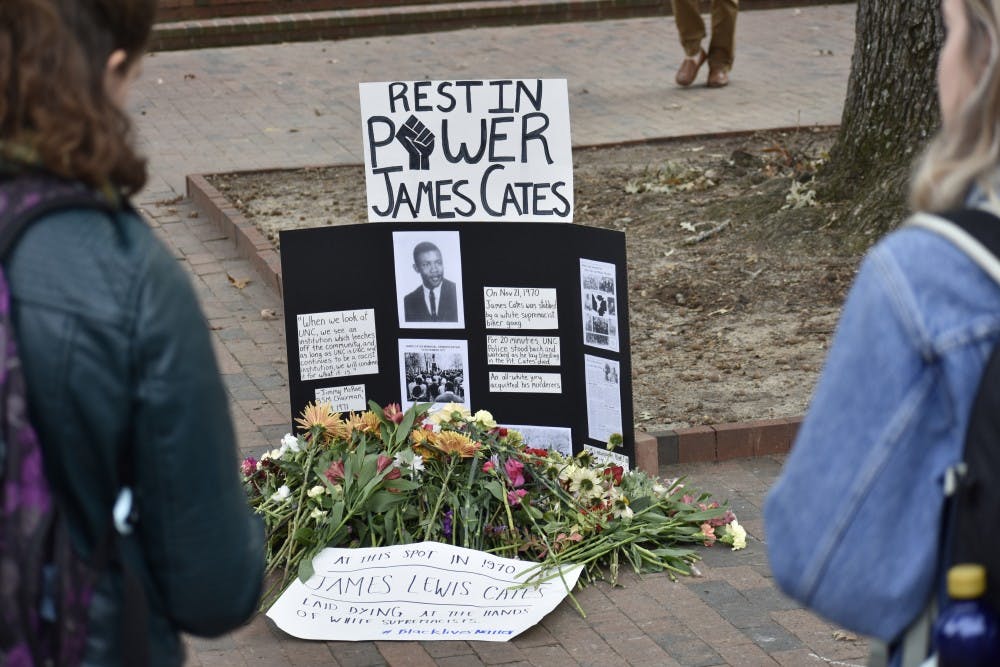Fifty-one years ago today, James Cates Jr. attended an all-night dance in the Student Union. He had been asked to go to by the event organizers, the Committee for Afro-American Studies and the Carolina Union.
The students had promoted the event as an intentionally interracial affair. They wanted Black students, like Cates, at the event — despite UNC's undergraduate population at the time being just two percent Black.
At around 2 a.m., a white supremacist motorcycle gang, the Storm Troopers, incited a fight with Cates and the other Black attendees. Cates was stabbed twice and left bleeding on the bricks in the Pit.
The call for an ambulance was taking too long. Black community members tried to take Cates to the hospitals themselves, but police stopped them. Between 14 and 45 minutes later, according to research, police eventually took Cates to the hospital — but it was too late.
An all-white jury determined Ronnie Broadwell, who was on trial for Cates’ murder, and all members of the Storm Troopers were not guilty.
The story of Cates is more than a hate crime. It is about the complicity of so many local institutions based in white supremacy — institutions whose difficult history we still have not reconciled today.
N.C. Sen. Valerie Foushee, D-Chatham, Orange, is a first cousin of Cates. She said the lessons of his tragedy are exemplary of the way racial inequities permeate our system at all levels.
“Until we address how race impacts our legal system, economic system, education system, we are not going to make the improvements we need to make,” Foushee said. “If there is any lesson to be learned, it’s that we have to acknowledge the implications of race in our systems.”
Foushee said the death of her cousin extends beyond his life alone, because we are still operating within the system that forced Cates to die unnecessarily. She said she believes we have not done enough to reconcile with his death.



